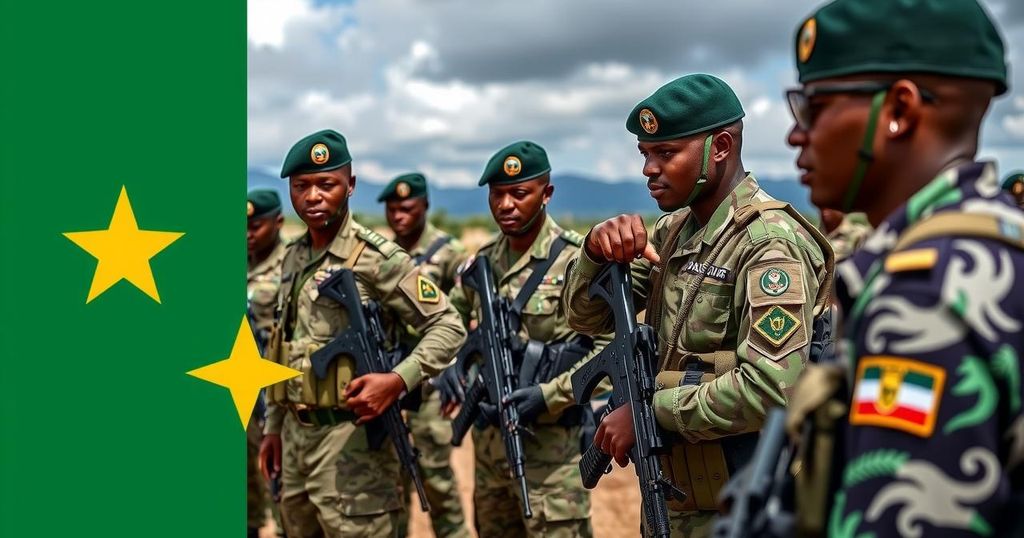The U.S. is advocating for the conversion of the Kenya-led force in Haiti into a U.N. peacekeeping mission due to increasing gang violence. Political instability has exacerbated the situation, provoking a U.N. response while addressing funding challenges. Despite the urgency, objections from Russia and China complicate the resolution process. The effectiveness and public perception of such missions, shaped by historical precedents, remain vital considerations in future interventions.
The United States has intensified efforts to convert the Kenya-led multinational force in Haiti into a United Nations (U.N.) peacekeeping mission, prompted by escalating gang violence that has recently paralyzed air traffic in Port-au-Prince. The U.S. first suggested the idea of a U.N. peacekeeping mission in September as a means to secure consistent funding for the multinational force intended to assist Haiti’s national police in combating rampant gang activity, which is currently facing a severe funding shortfall. Gang violence surged last week following political turmoil, which led to the dismissal of Haiti’s interim prime minister amid clashes within a transitional council aimed at restoring democratic governance. The U.N. now estimates that gangs control approximately 85% of Port-au-Prince, and their actions culminated in the shutdown of the country’s main airport after attacks on commercial aircraft. The United States has attempted to gain approval from all 15 members of the U.N. Security Council on a draft resolution, which seeks to initiate preparations for the transformation into a U.N. force. However, objections from Russia and China have arisen, necessitating further discussions in private council meetings. The originally proposed deployment aimed for 2,500 international police personnel; as of late last month, only about 430 are currently in Haiti, primarily from Kenya, along with a few representatives from the Bahamas, Belize, and Jamaica. Kenya’s President recently announced an additional deployment of 600 personnel planned for November. A U.N. official has expressed concerns over inadequate funding for the multinational force, as the trust fund that supports its operations still falls short of necessary financial support despite pledges of nearly $96.8 million. As Haiti grapples with escalating turmoil, marked by a rise in violence and criminality since the assassination of President Jovenel Moïse in 2021, local leadership has urged for U.N. intervention. The call for a peacekeeping force aligns with a recent resolution passed by the Organization of American States supporting such operations. The arrival of the Kenyan contingent marks the fourth major foreign military intervention in Haiti’s history, with mixed reactions from the local population, particularly in light of past missions that were marred by allegations of misconduct.
The ongoing crisis in Haiti, exacerbated by rampant gang violence following the assassination of President Jovenel Moïse, has drawn significant international attention. The Kenyan-led multinational force is currently operating in an environment marked by severe insecurity and political instability. Historically, foreign interventions in Haiti have been contentious; past U.N. missions have faced criticism due to allegations of misconduct and public health crises. The current push by the U.S. to revise the framework of international assistance in Haiti highlights persistent challenges faced by the region, as well as the complexities of international diplomatic efforts to secure stabilization.
As gang violence continues to destabilize Haiti, the United States is rallying support for the transformation of a Kenya-led contingent into a U.N. peacekeeping mission. With substantial funding shortfalls and hesitations from key Security Council members, establishing a robust peacekeeping presence remains a complicated endeavor. Furthermore, the historical context of foreign interventions underscores the need for careful consideration of the local populace’s sentiment, as past actions have left a lasting imprint on Haiti’s trust in international forces.
Original Source: apnews.com






